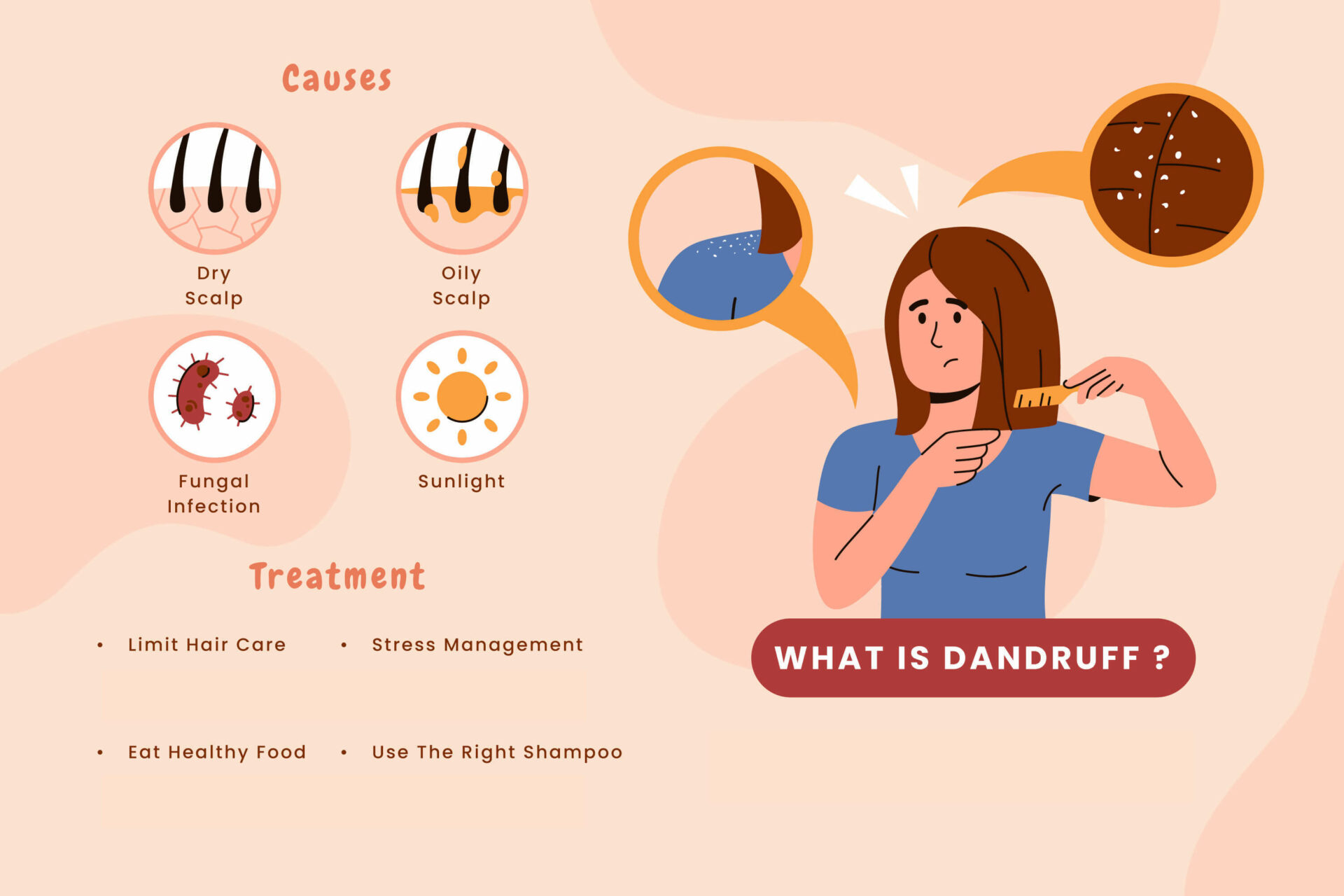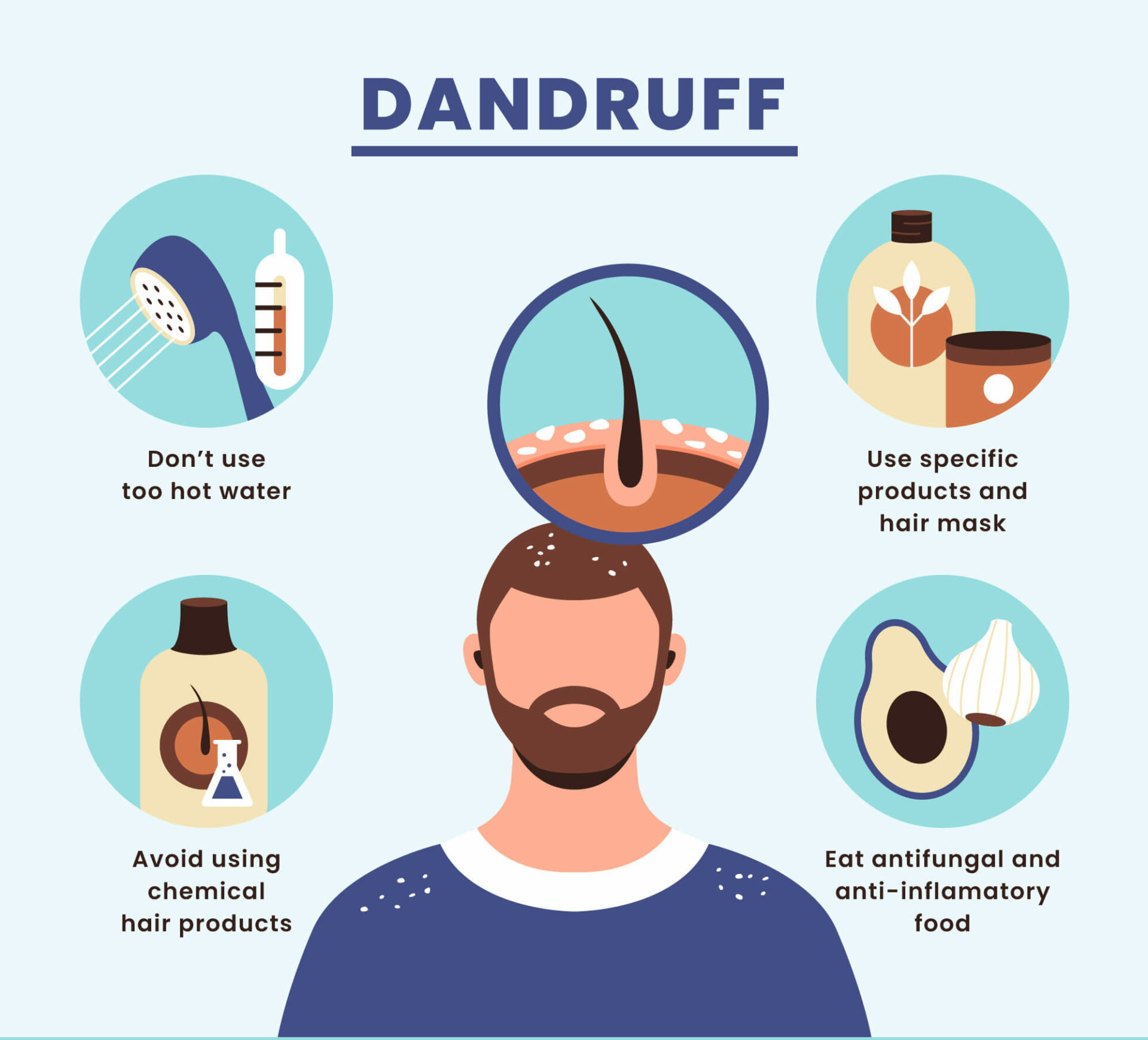Understanding Dandruff And Its Genetic Link

Table of Contents
Dandruff is a common scalp condition that affects people and pets alike, causing flakiness, itchiness, and frustration for many. Let’s delve into what causes this pesky problem, why it can seem worse for some, and how our furry friends are not immune to its flakes.
What Causes Dandruff?
Dandruff can be caused by various factors, from dry skin to overgrowth of a yeast-like fungus called Malassezia. Sometimes, sensitivity to hair care products or conditions like seborrheic dermatitis can also lead to dandruff. The turnover of skin cells on the scalp is a natural process, but dandruff can occur when this turnover happens too rapidly.
What is Dandruff?
Dandruff is characterized by the shedding of dead skin cells from the scalp. While a small amount of flaking is normal, it is identified as dandruff when the scalp is excessively shedding large flakes.

Is Dandruff Genetic?
The predisposition to develop dandruff is believed to have a genetic component, although the exact inheritance pattern is unclear. Dandruff is a multifactorial condition, meaning genetic susceptibility and environmental factors influence it.
The presence of dandruff can be linked to the body’s response to the presence of a common fungus on the scalp, Malassezia. People with dandruff might have a scalp that is more sensitive to the by-products of this fungus, leading to irritation and increased cell turnover that causes flaking and itching. This sensitivity could be inherited.
According to a 2020 review article, no clear genetic predisposition to dandruff has been established. However, recent studies showed that certain increased-risk human leucocyte antigen (HLA) alleles, such as A*32, DQB1*05 and DRB1*01 and possible associations with psoriasis and atopic dermatitis (AD) through the LCE3 gene cluster while SD, and SD-like syndromes, shares genetic mutations that appear to impair the ability of the immune system to restrict Malassezia growth, partially due to complement system dysfunction.
Moreover, specific conditions that often lead to dandruff, such as seborrheic dermatitis or psoriasis, have known genetic links. Individuals with a family history of these skin conditions may be more likely to develop dandruff.
Research into the human genome continues to uncover various genes that may contribute to skin conditions, including those affecting the scalp. While no single “dandruff gene” has been identified, the interplay of multiple genes could influence an individual’s tendency to develop dandruff.
Section Summary
It’s important to note that just because there is a genetic propensity for something doesn’t mean it will definitely occur. Lifestyle choices, health conditions, diet, stress levels, and hair care practices also play significant roles in whether or not someone develops dandruff.
Why Do I Have Dandruff?
Your battle with dandruff could be due to several reasons. Dry skin, oily scalp, insufficient shampooing, or sensitivity to certain hair care products are common triggers. Stress and cold weather can also exacerbate dandruff.
How Do You Get Dandruff?
Dandruff isn’t “caught” by others; it develops due to factors such as the skin’s oil production, hormonal fluctuations, or medical conditions. Everyone can get dandruff based on their body’s unique reactions and processes.
Why Do I Have So Much Dandruff?
If you’re experiencing excessive dandruff, it could be due to severe scalp conditions, such as psoriasis or eczema. Overgrowth of the scalp fungus Malassezia can also cause more significant dandruff issues.
A Lot of Dandruff and Hair Fall
Excessive dandruff can sometimes accompany hair loss. This can be due to scratching the itchy scalp or a sign of an underlying condition that affects both the scalp’s health and hair follicles.
Can Cats Get Dandruff?
Yes, cats can get dandruff. It’s often a sign that your cat may need a more balanced diet, better hydration, or assistance with grooming. Sometimes, it could also indicate health issues that require veterinary attention.
Recommendations To Manage Dandruff

Why Does My Cat Have Dandruff?
Cats can develop dandruff for various reasons such as dry air, poor diet, or underlying health issues. Older cats may have trouble grooming themselves effectively, leading to dandruff.
Why Does My Dog Have Dandruff?
Like cats, dogs can get dandruff from dry skin, poor nutrition, or certain health conditions. Allergies, parasites, and lack of grooming can also contribute to your dog’s flaky skin.
Summary
Dandruff is a widespread condition that affects humans and pets. Various factors, from skin fungus to dietary deficiencies, can cause it. While it’s a benign condition, persistent dandruff and accompanying symptoms may require consultation with a healthcare provider or veterinarian to ensure there isn’t a more serious underlying issue. By understanding the causes and adopting the right care, you and your pets can achieve a flake-free existence.
Written By
Share this article












